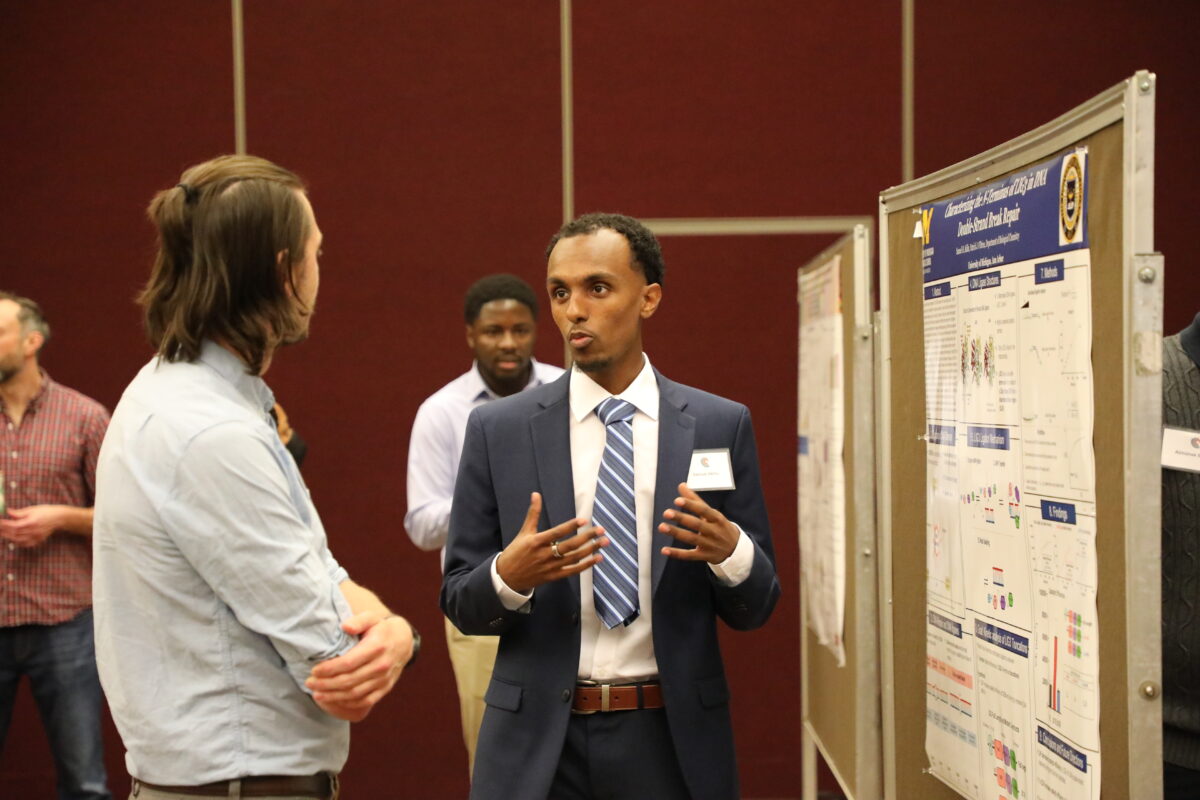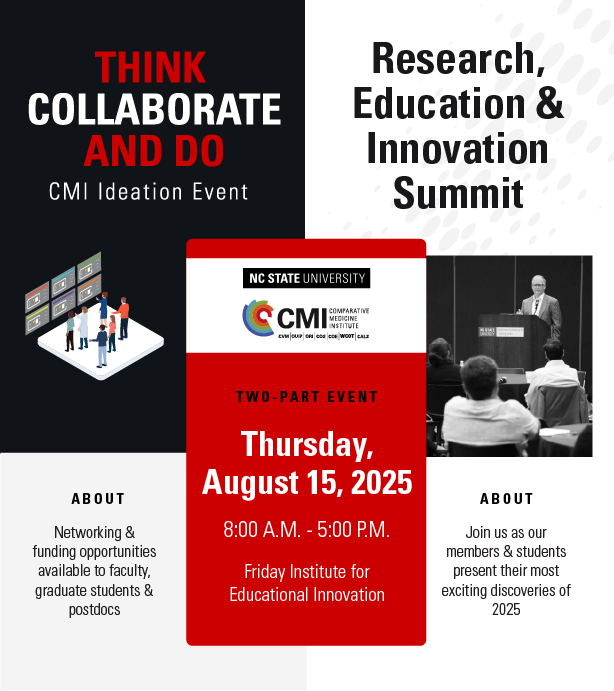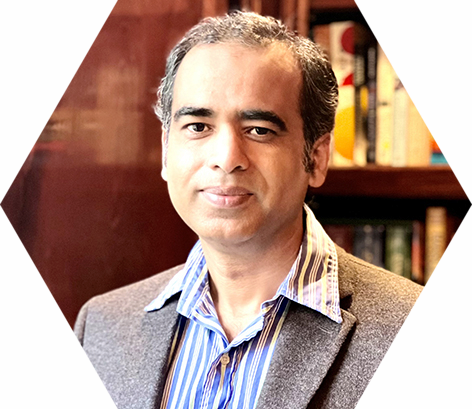Research, Education & Innovation Summit

Celebrating 10 Years of Groundbreaking Research
Please join us to celebrate our members’ accomplishments and the tenth anniversary of the CMI!
Friday, August 15, 2025
11:30 a.m.-4:30 p.m.
Friday Institute for Educational Innovation
This year’s event will again be a combined event with the with “Think, Collaborate & Do” Ideation Event in the morning and the Summit in the afternoon. To participate in the Ideation Event, you must register separately using the button below.
We are also seeking Associate Member volunteers to help run the event. To find out more or to sign up, use the “Volunteer” button below, or contact Valerie Baker at valerie.baker@ncsu.edu.

Summit Agenda
- 11:30-12:50 Lunch, Guest Speaker Keynote Address
- 12:45-12:55 Intro to Afternoon Session
- 12:55-1:25 Division Focus–Clinical & Translational Sciences
- 1:25-1:55 Division Focus–Data Enabled Modeling
- 1:55-2:15 Entrepreneurship Highlights
- 2:15-3:00 Poster Session 1
- 3:00-3:30 Division Focus–Engineered Biomedical Systems
- 3:30-4:00 Poster Session Group 2
- 4:00-4:20 Education: YSP & SIRI Student Highlights
- 4:20-4:30 Awards Presentation
- 4:30-5:00 Poster Breakdown
- 4:30-6:00 Social Hour (Off Campus)
Please Note: The Friday Institute has ample free parking for event attendees. However, please be aware of school-time traffic at the adjacent middle school.
Keynote Speaker: Dr. Ankur Singh

Ankur Singh is Carl Ring Family Professor of Mechanical Engineering and Biomedical Engineering at Georgia Institute of Technology where he runs the Immunotherapy and Cell Engineering Laboratory (ICEL). Singh started at Cornell University as an Assistant Professor in 2013 and was promoted with tenure to Associate Professor with joint appointments in the Mechanical Engineering and Biomedical Engineering. At Cornell, he served as the Associate Director of the NIH T32 training grant on Immuno-engineering, executive council of the Center for Immunology, and the Cornell (Ithaca) – Weill Cornell Medicine (NYC) Academic Integration initiative. Prior to joining Cornell, he completed his postdoctoral training in cell mechanobiology, cell-matrix interactions, and stem cell engineering at Georgia Tech in Mechanical Engineering.
Poster Sessions
All CMI Members & Associate Members are invited to present a poster. Sign up by Friday, August 8th if you would like to present your work using the link below.
**SIRI, U-TEAM, and AHA Undergraduates are required to participate in the poster competition.** Other undergraduate and graduate trainees are strongly encouraged to participate as well, but are not required.
Questions? Email Valerie Baker (compmedinst@ncsu.edu)